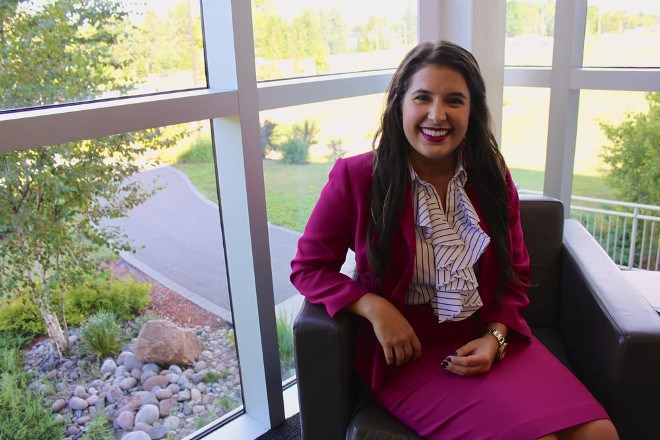Less than a year since she took on her role as an entrepreneur full time, Melissa Kargiannakis has raised US$500,000 in pre-seed startup funding to further advance her text-translation software Skritswap.
In September, Kargiannakis announced that a group of funders, led by Unshackled Ventures, a Silicon Valley, Calif.-based, early-stage fund, was providing the financing to help further fine-tune the technology, which helps readers across literacy levels understand information online.
“Silicon Valley has a high concentration of capital at an absolutely unfathomable scale, and when you work with investors out here the customer service component is fantastic because there's so much competition,” she said.
“There are 1,600 venture capital firms just in the valley, and that does not include individual private investors. So the servicing you get and the competition to fund you is really high, which is amazing because you actually really do get to work with some of the best investors that you want to work with.”
Formerly known as Heuristext, Skritswap is an online application that uses artificial intelligence to swap out difficult-to-understand text on a web page with text that’s simpler and easier to digest. The idea is to match what the user is reading with their literacy level, so that anyone, with any level of ability, can understand whatever they’re reading, on any web page.
So far, Skritswap’s paying clients have come to her, with companies in the finance and insurance industries – Business Development Bank of Canada, Manulife – finding the most value in the technology.
Kargiannakis said this new round of funding will be used for two purposes: increasing the percentage of documents translated by machine automation, and addressing specific problems faced by paying customers.
Customers can either subscribe to the service, or work with Skritswap on a specific problem. For example, Skritswap can help an insurance company tailor their insurance claim denial forms to make them as easy to read as possible.
Quite often, clients choose both options, Kargiannakis noted.
“We have both revenue models right now,” she said. “So we can be as customized as a client would like, but we also have other product offerings that are more subscription-oriented.”
The Saut Ste. Marie-born-and-raised entrepreneur first envisioned Skritswap in 2013 while studying her Master’s degree in Health Information Science at Western University. For years, she worked on the software alone, while working full time, until an internship at a Silicon Valley, Calif., startup lab last year kick the software’s development into high gear.
Now Kargiannakis has a stable of eight full-time employees (and up to 12 including contractors), the majority of which are based in Northern Ontario. The rest reside in southern Ontario, with a few based in New York City.
These days, Kargiannakis splits her time about 50/50 between Sault Ste. Marie and Silicon Valley, where she says the opportunities to meet investors and access to resources is unparalleled. Funders from both regions have been extremely supportive, trusting in her leadership abilities and vision for the future.
She anticipates reaching the next milestone anywhere between six and 18 months from now, when she hopes the technology will be even more streamlined and she can start approaching new clients for business.
Kargiannakis said the technology isn’t quite where she envisioned it would be, but it’s getting there.
“While I'm proud and excited of what we've been able to accomplish and where we're at, it's really still very much just the beginning,” Kargiannakis said.
“So I’m very excited to continue working over the next few years very intensely until we can reach that point where this technology is everywhere that information is and actually helping not millions, but billions of people.”




